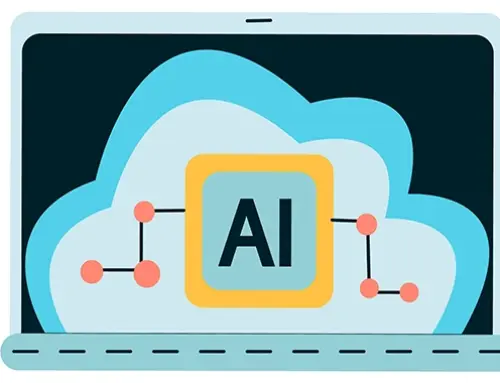Contents
Has it been a recent concern for you to make more sales? Are you thinking about expanding your marketing strategies? Do you have a low budget when it comes to advertising? If your answer to these questions is yes, then affiliate marketing is the right marketing strategy. Affiliate marketing is a marketing strategy that uses affiliates to draw in sales for a business. But how does that work exactly? There are two different affiliate programs: Affiliate marketing and high ticket affiliate marketing. This blog post gathers all the information you need to get your affiliate marketing strategy going and earn more money.
What is Affiliate Marketing?
Every business needs to promote its products or services in order to make sales. In an affiliate program, a third party, called the affiliate, will promote the product for the business with their marketing strategies. If the affiliate manages to make a sale, they will earn a commission of the sales profit as their payment. Affiliate marketing is an excellent solution if you, as a business owner, do not have the time, budget, or resources to do product promotion and advertising on your own. It’s like hiring people to sell your product for you and paying them with a percentage of the profit you make. In affiliate marketing, this percentage is usually between 5% to 30%, depending on product value, profit value, and the number of sales done by the affiliate.
How Does Affiliate Marketing Work?
To fully understand the affiliate marketing process, first, you have to get to know the three parties involved. Each affiliate program consists of a seller, an affiliate, and a customer. Now let’s see what role each of them play in the process:
1. The seller
The seller is the business order. They can be a product producer, a retailer, or a merchant with a product to sell. The product can be a physical product, a digital product, or a service. The business owner may already have a marketing strategy according to their business branding but also look into hiring affiliates to benefit from the additional sales referred via the affiliate program.
2. The affiliate
The affiliate or publisher is a person or a marketing company with a specific niche audience. The affiliate’s audience usually is interested in a product or a set of products and services. The seller will hire the affiliate to sell products based on their audience’s desire. Now, the affiliate will have their own strategy on how to market, promote the product, and persuade their audience to buy the product or service. They will either have a deal with the seller or merchant agreeing that the customers purchase the products directly from the affiliate or direct the customers to the merchant’s website to make the purchase. They will then earn a commission of the profit made from the sale.
3. The customer
The affiliate will share the products on various channels, for example, website blogs and social media. That is how the product is presented to the customers. When the customer makes a purchase, the profit earned will be shared between the seller and the affiliate. The customer might be completely unaware of the whole affiliate marketing process. Some affiliates choose to let the customers know that their purchase is a part of an affiliate program. One significant thing about affiliate marketing is that there is no added fee to the product price. The affiliate payment is already noted in the retail price, so customers do not have to pay more for a product if they buy it through an affiliate.
How Do Affiliates Get Paid
As a business owner, you have to know the payment methods before signing a contract with your desired affiliate. An affiliate network can also be made for purposes other than sales. Sometimes you make an affiliate link to bring more traffic to your website. For example, your newsletter will be the “product” you want affiliate marketers to promote. Considering what your goal is, there are three methods to pay the affiliates:
1. Pay per sales
This method is what I mentioned earlier in this blog post. The merchant will pay the affiliate marketer a commission from the purchase a customer referred by the marketer will make.
2. Pay per lead
If what you need from an affiliate network or marketing is to have customers subscribe to your blog or sign up for a free trial, the affiliate has to persuade their audience to visit your website and do so. Then the affiliate will be paid per every successful subscription or sign-up, coming from their marketing strategies.
3. Pay per click
Sometimes the only reason you sign a contract with an affiliate is to increase your web traffic. Increasing web traffic is the easiest task compared to the other marketing strategies an affiliate has to develop. All they have to do is redirect customers from their platform to your website. In this case, the affiliates will be paid based on website traffic.
What Are The Top 4 Affiliate Marketing Channels?
We already know that affiliates are either an individual or a company. But let’s get a bit more specific. Who exactly are these people? What does an affiliate do to promote a product or service? Well, actually, there are different ways an affiliate makes a sale. Let’s view the top 4 ways an affiliate can promote a business.
1. Influencers
An influencer is a public figure or a well-known social media star who has a noticeable influence on people who admire them. Influencers have the power to influence and persuade their followers to take a certain action. These people have great potential to become affiliate marketers. They usually have a massive audience, making it easy for them to direct customers to a seller’s product via social media content or blogs. Influencer marketing campaigns are a type of affiliate network that usually runs on social media platforms like Instagram. Influencer marketing campaigns consist of product reviews and paid partnership posts on the influencer’s page to promote a single product or a collection. Since influencers typically have a specific personal branding and aesthetic, try to look for those who match your brand identity to ensure you have the right target audience.
2. Bloggers
Bloggers are influencers who have their own blog or website. Their primary focus is content creation, good website traffic, and organic ranking in the search engines like Google. Working with a blogger as an affiliate is with the product reviewing method. The seller will send product samples for the blogger to test and write a review on. Then the customers interested in the product will make a purchase, and a percentage of the profit is the blogger’s commission.
3. Email lists
Email marketing can also work directly with affiliate marketing. Affiliates can gather emails with campaigns and subscriptions to make an email list. Then they can use the email list to promote a seller’s product. They can also persuade customers to buy a seller’s product or service with email newsletters, including hyperlinks to the seller’s website. They will then earn their commission from each sale made. The downside to email marketing for affiliates is that it takes a lot of time, research, and patience to gather an email list. Other than that, the affiliate marketing process is seamless using email templates.
4. Large media websites
Big media websites have a huge daily traffic and a multi-million audience. Affiliate marketing with these websites is via banners and contextual affiliate links to promote a seller’s product or service to their massive audience. This method results in considerable exposure and traffic for the seller’s website and a high customer conversion rate.
Now that you know the basics about affiliate marketing, let’s learn about high ticket affiliate marketing.
What Is High Ticket Affiliate Marketing?
High ticket affiliate marketing is a type of affiliate marketing. In high ticket affiliate marketing, the commission rate is higher than the usual affiliate marketing rate, or the promoted product is expensive. Affiliates usually sign-up for high ticket affiliate marketing programs because they can earn more profits by promoting high-cost products or services. In high ticket affiliate marketing, the commission rate for the affiliate marketer is usually around $100.
Suppose you are offering a rather expensive product or service. You can choose high ticket affiliate marketing. The more you pay your affiliates, the more motivated they will be to increase sales for you. There are different types of high ticket affiliate marketing. High ticket offers, high conversion rates, and recurring commission offers are some types of high ticket affiliate marketing. I will break them down for you so you can choose the plan that best fits your products and business.
Types Of High Ticket Affiliate Marketing
These strategies are the main high ticket affiliate marketing plans that the affiliates sign up for:
- The high ticket offer: This method is what we have discussed earlier. Affiliates will present and promote expensive products and make a high amount from each sale’s profit even if the commission rate itself is not high.
- The high converting offer: These offers have a high commission rate for the affiliate. It doesn’t matter how much the product costs; if the commission rate goes beyond 10%, that is considered a high commission rate. The most ideal high ticket affiliate program for the affiliates is a mixture of the high ticket and the high converting offers: expensive products, higher profit, and higher commission rates.
- Repeating purchase offers: The affiliate has to make returning customers for exclusive products in this method. An exclusive product, like a high-quality, luxurious face cream, is something the customer would want to buy repeatedly. If the affiliate strategizes their advertising right, they can make repeating sales from the same customers.
- Low-competition market: a high ticket product in a developing, new market is always a good opportunity for affiliates to earn big money from. When you have a relatively new product and want to make sure it is introduced and sold as it should, it’s a fantastic decision to invest in high ticket affiliate marketing.
- Recurring commission offers: there’s a difference between repeating sales and recurring sales. The affiliate will secure a weekly, monthly, or yearly commission in recurring sales as the customer is introduced to make a subscription to a business service. The affiliate will get paid every time the customer renews their subscription.
What Products Are Considered “High Ticket” Products?
When talking about high ticket affiliate marketing, we usually think about expensive products. Although, products sold through the high ticket affiliate marketing do not always have to be expensive. It all comes down to the business owner’s strategy and decisions. Sometimes a seller will raise affiliate commission rates on a standard product because they do not have the time or budget or even the knowledge of marketing and advertising. They would rather pay a higher commission rate to have affiliates motivated and focused on sealing more deals for them. No matter how it’s always a win-win situation. The most common type of products sold through high ticket affiliate marketing are software and digital products since they allow the opportunity to make recurrent sales.
Benefits Of Affiliate Marketing For A Business
Now you may still wonder, is affiliate marketing a good strategy for my business? If so, I encourage you to read below the benefits of affiliate marketing:
1. Minimum start-up costs
Affiliate marketing has become a favorite between business owners because it requires no marketing or advertising teams. If you are starting your business or own a small company, you don’t have to invest in hiring an advertising team or purchasing ad spaces.
You will rely on your affiliates to do the marketing and advertising. They know their audience and know how to promote your product to make a sale. As a business owner, the only effort you have to make is to find affiliate marketers and introduce them to your brand identity and products or services.
2. Low ongoing costs
Since your affiliates are in charge of marketing, you do not have to pay for any marketing solutions or advertising. The affiliate will be responsible for any marketing expenses to promote and sell your products. Since the process is a commission-based program, you only have to pay the commission rate after the sale is made.
Affiliate marketing makes costs easy and does not interrupt your sales process with expenses as other marketing strategies do.
3. Target Audience
Each affiliate marketer or marketing company has a niche market for a certain product type. You choose the affiliates based on the fact that their niche market is your target audience. They will promote your products or services to people who are interested in them, so chances to seal a deal are higher, and the sales process is faster than when you need to gather your own niche market.
4. High ROI
Affiliate marketing has proven to have a higher return of investment compared to other marketing methods. This is simply because your products or services are presented to a highly-targeted audience by an affiliate that has a noticeable amount of influence on them, so the chances of the promotion resulting in a sale are higher than the other marketing strategies.
What Strategies Do Affiliate Marketers Use to Boost Sales?
We spoke about how affiliates make affiliate marketing easy for companies in the previous section. But how do they do it? What are the marketing strategies they use to sell your products? In order to sign an affiliate contract, you have to know every detail about your affiliates marketing strategies to make sure they are on the same page as you are.
1. Using products before promoting them
When you work with influencers or bloggers in an affiliate link, the first step is to send them a sample of your products or offer them your service. For an affiliate to promote a product, they have to fully know the product, find its advantages and disadvantages and use it to know how it works. They have to like it and have a positive view about it to confidently promote it to their audience.
2. Giving free bonuses on affiliate products
A strategy affiliates use to stand out is to give free bonuses on your products. These bonuses have to be free and relevant to the product. Examples of free bonuses are videos, ebooks, reports, and anything that will draw the customer’s attention. They will let customers know that there is a free bonus after purchasing the product through their affiliate link. In high ticket affiliates, the free bonus has to be something valuable as well to stand out in the competitive market.
3. Writing reviews
People are interested in buying products that solve their problems. When affiliates promote a product, writing a full detailed review can help sell the product. A review should contain everything about the product; the benefits, details, how it works, and so on. Affiliates can also add their own experience with the product and customer testimonials to grab potential buyers’ attention. They will add their affiliate link in the review as the last step.
4. Using different tracking links
One practical step for the affiliates to make more sales is tracking and analyzing their traffic. As a business owner, if you allow your affiliates to create different tracking links, they will be able to use a tracking link per platform. This way, they can track and understand which platform has more traffic to your website and which are not. This gives them a good analysis of which platforms to eliminate and which has more potential and needs to be focused on more.
Wrapping Up
Congratulations! You are now an affiliate marketing expert. Now that you know everything about affiliate marketing, affiliate marketers or publishers, influencer marketing, and high ticket affiliate marketing, you can choose what program is best for your business and how to integrate it into your marketing strategy. Affiliate marketing can speed up your sales process and higher the amount of sales you make. The good thing about affiliate marketing is that you don’t have to be occupied with marketing and advertising. Research and find your target market, and then find an affiliate with the same niche market. Consider if any of the high ticket marketing solutions are suitable for you. Then calculate the affiliate commission rate and make sure you include the commission rate in your retail price. Now, sit back and enjoy the profit you are making!
Disclaimer: The content provided on this blog is for informational purposes only and does not constitute legal, financial, or professional advice.






